
Sports
17:26, 13-Jul-2018
The game of Golden Generation 2.0
Updated
17:00, 16-Jul-2018
Suvam Pal
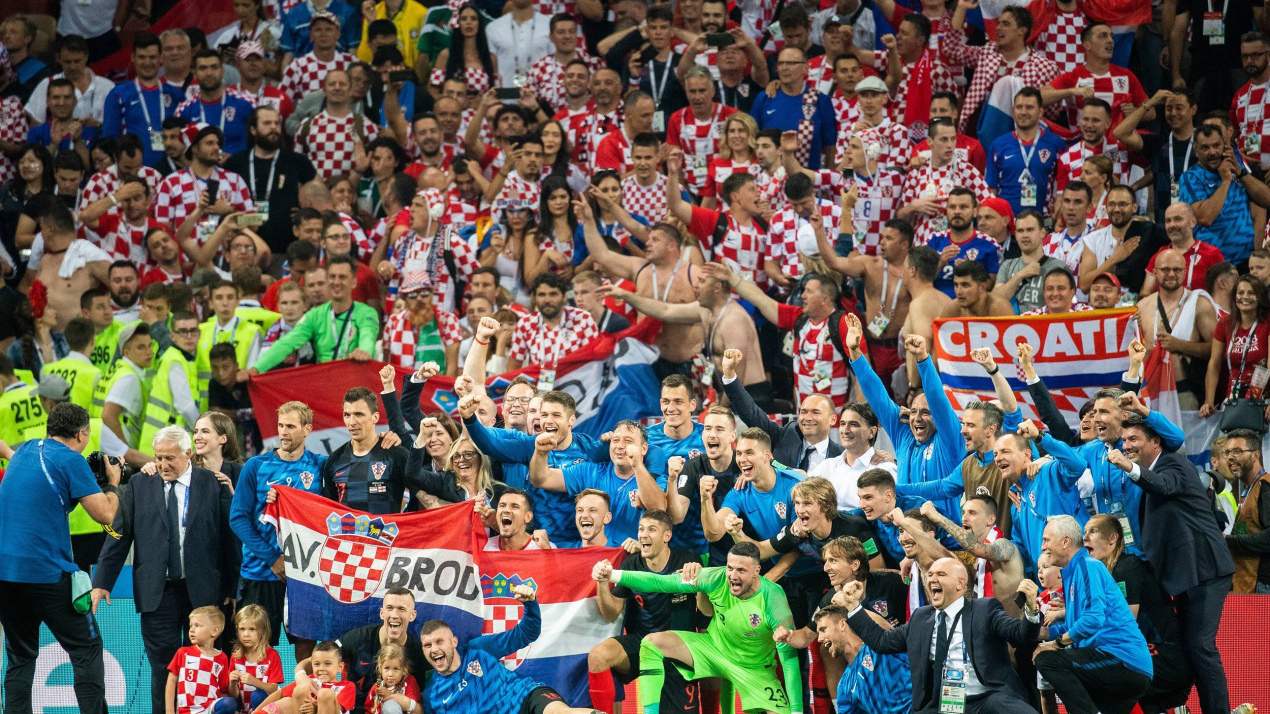
This World Cup may have witnessed heartbreak for Belgium and its much-touted "Golden Generation" , but Sunday’s final will see another version of this in Croatia's "Golden Generation 2.0" when they get a chance to end their memorable campaign on a winning note on Sunday at Moscow’s Luzhniki Stadium.
The clinical Croats
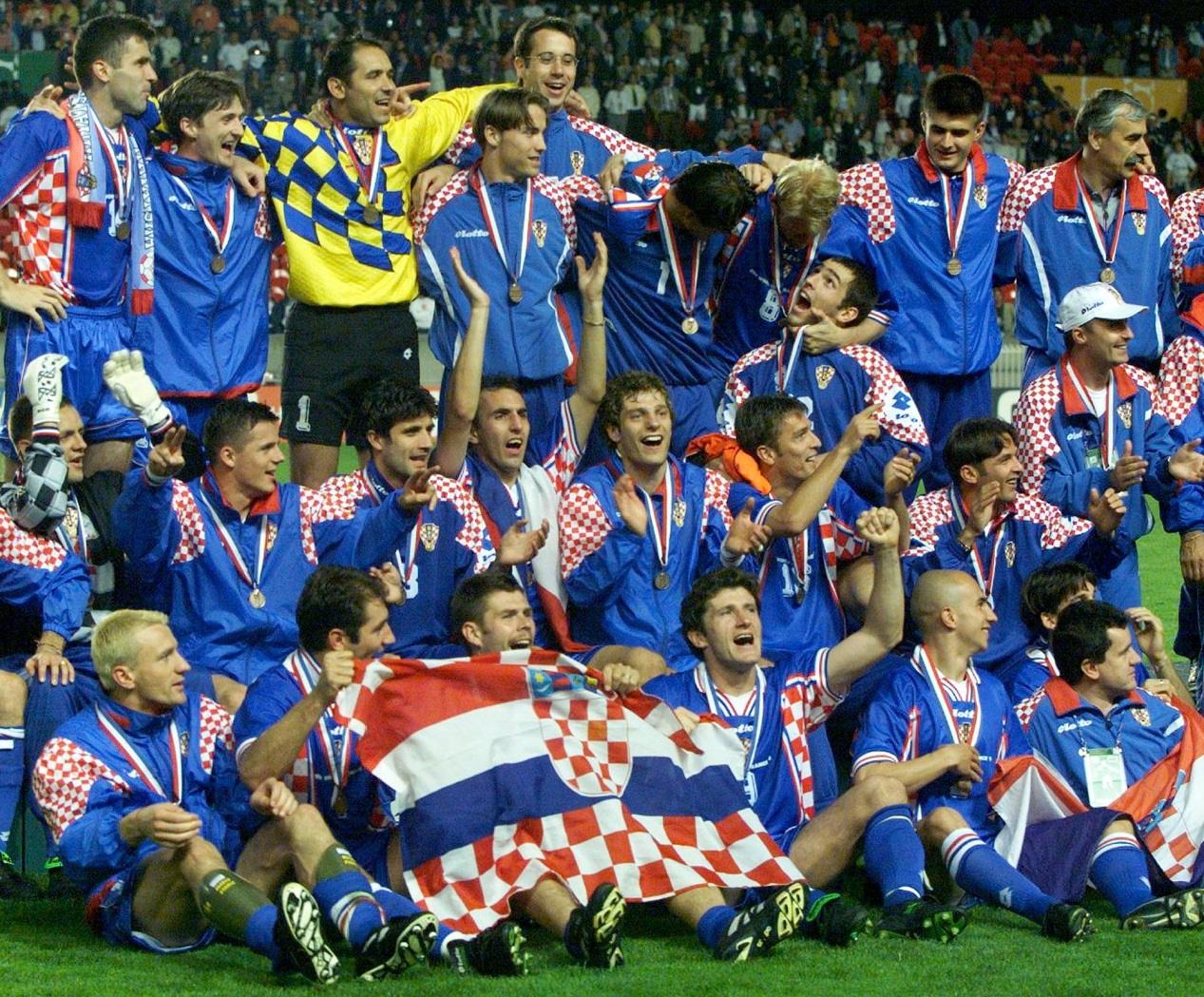
Croatian team members hold their flag as they celebrate their World Cup third place play-off victory over the Netherlands in 1998. /VCG File Photo
Croatian team members hold their flag as they celebrate their World Cup third place play-off victory over the Netherlands in 1998. /VCG File Photo
Led by midfield maestro Luka Modric, the Croatian stalwarts likes Ivan Rakitic, Mario Mandzukic, Ivan Perisic are setting their eyes on the big C, which remained elusive for their earlier "Golden Generation," featuring Davor Suker, Zvonimir Boban and Robert Prosinecki, whose World Cup dream was shattered at the hands of Zinedine Zidane’s France in the semifinal of the super summer of 1998.
“The greatest expectations on us come from us,” captain Modric told the media ahead of Croatia’s tournament-opener against Nigeria in Kaliningrad. “Whether this is the last chance or not is irrelevant,” he added.
A lethal striking force, a potent midfield and a rock-solid defense have raised hopes for Croatia’s second Golden Generation.
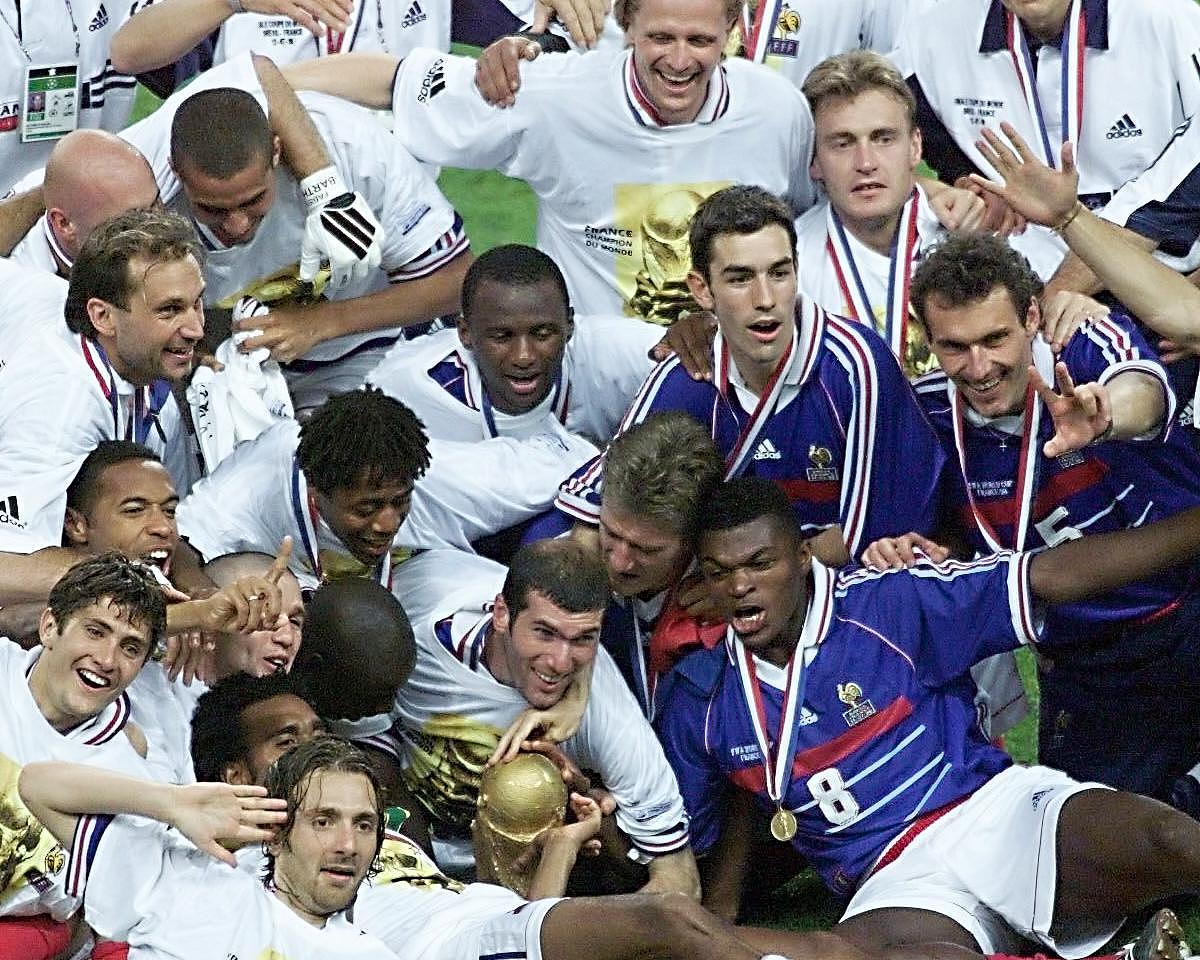
French players jubilate after winning the World Cup final match against Brazil in 1998 World Cup. /VCG File Photo
French players jubilate after winning the World Cup final match against Brazil in 1998 World Cup. /VCG File Photo
However, the cruxes of the experienced Croatians, who are in their early thirties, are facing an uphill task ahead of the much-anticipated grand finale.
This French team, managed by their 1998 World Cup-winning captain Didier Deschamps may not be having a star-studded side like that of their 1998 Golden Generation, also featuring Zidane, Fabien Barthez, Lilian Thuram, Laurent Blanc, Marcel Desailly, Bixente Lizarazu, Christian Karembeu, Emmanuel Petit and Youri Djorkaeff among others, but they have already started being branded as the Golden Generation 3.0 of Les Bleus.
For France, their batch of 1998 accomplished what their first Golden Generation of Michel Platini, Joel Bats, Jean Tigana and Alain Giresse failed to accomplish after finishing third in the 1986 World Cup.
The sensational team with the likes Paul Pogba, Kylian Mbappe, N’Golo Kante and Benjamin Pavard have already ushered in a new Renaissance in French football and may well go down to the history as the second Golden Generation to lift the World Cup.
If any of the two teams fail in the final, they will go down to history like a slew of other Golden Generations in world football, who failed to live up to the expectations.
Past Golden Generations
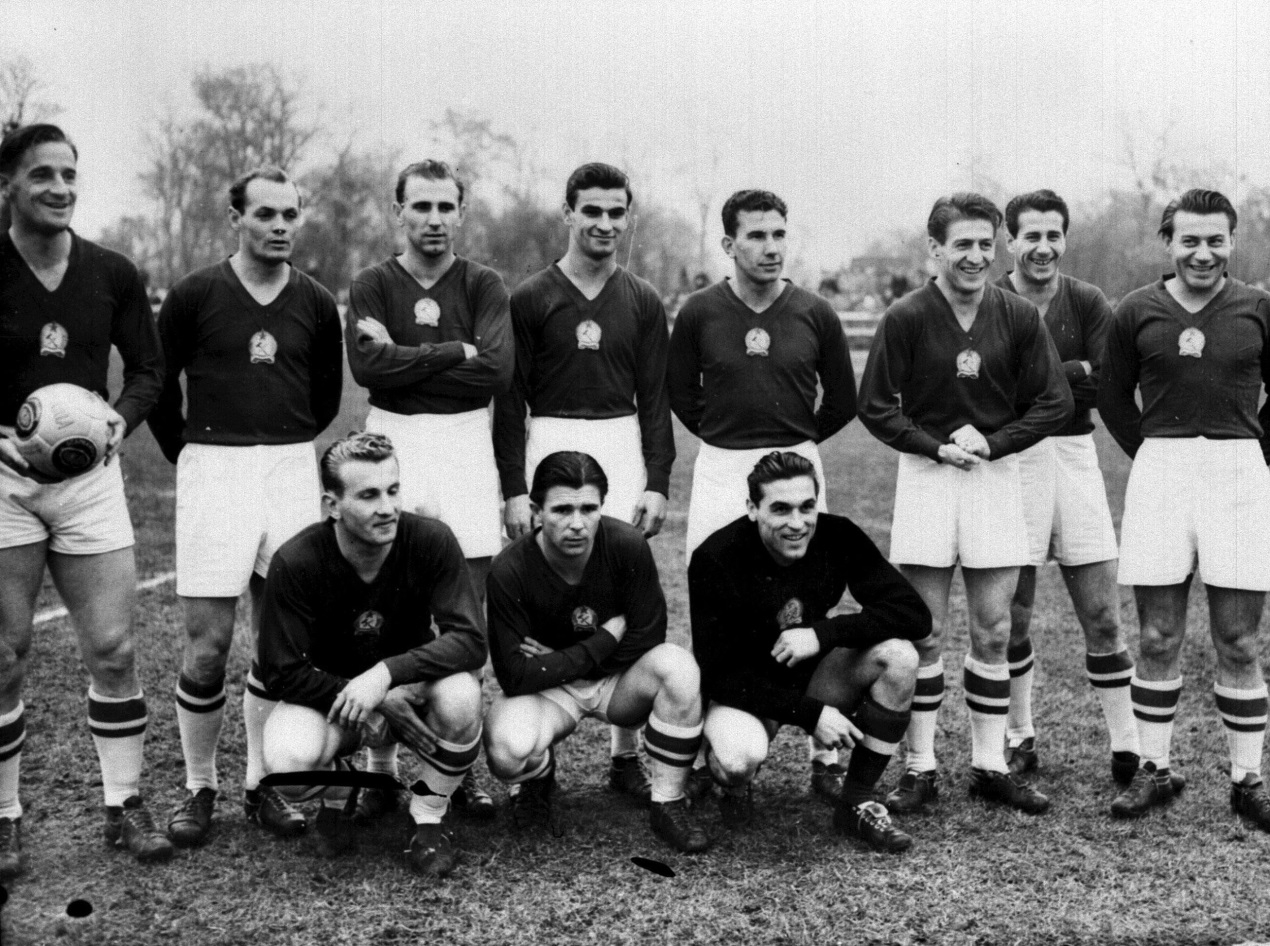
Hungary's Ferenc Puskas (center, front) lines up with his team-mates, (back row left to right) Lorant, Busanski, Hidegkuti, Kocsis, Zakarias, Czibor, Bozsik, Budai. (front row) Lantos (left) in 1953./VCG File Photo
Hungary's Ferenc Puskas (center, front) lines up with his team-mates, (back row left to right) Lorant, Busanski, Hidegkuti, Kocsis, Zakarias, Czibor, Bozsik, Budai. (front row) Lantos (left) in 1953./VCG File Photo
Hugo Meisl-managed Austrian "Wunderteam" of the 1930s with Matthias Sindelar, Josef Smistik and Walter Nausch forming the core of the team and despite having an invincible side they were controversially beaten by hosts Italy in the semifinal and finished fourth after losing the third-place play off against Germany.
Similarly, another greatest generation of World football was the Magic Magyars or Mighty Magyars of the 1950s which, led by Ferenc Puskas and well-supported by Sándor Kocsis, Nándor Hidegkuti, Zoltán Czibor, József Bozsik and Gyula Grosics, recorded 42 victories and seven draws between 1954 and 1956 before shockingly losing the 1954 World Cup final against West Germany.
Another colossal failure by a Golden Generation was when Rinus Michels’s high-flying "total football"-playing squad, featuring Arie Haan, Ruud Krol, Johan Neeskens, Rob Rensenbrink and their legendary captain Johan Cruyff agonizingly finished runner-up in both 1974 and 1978 World Cup.
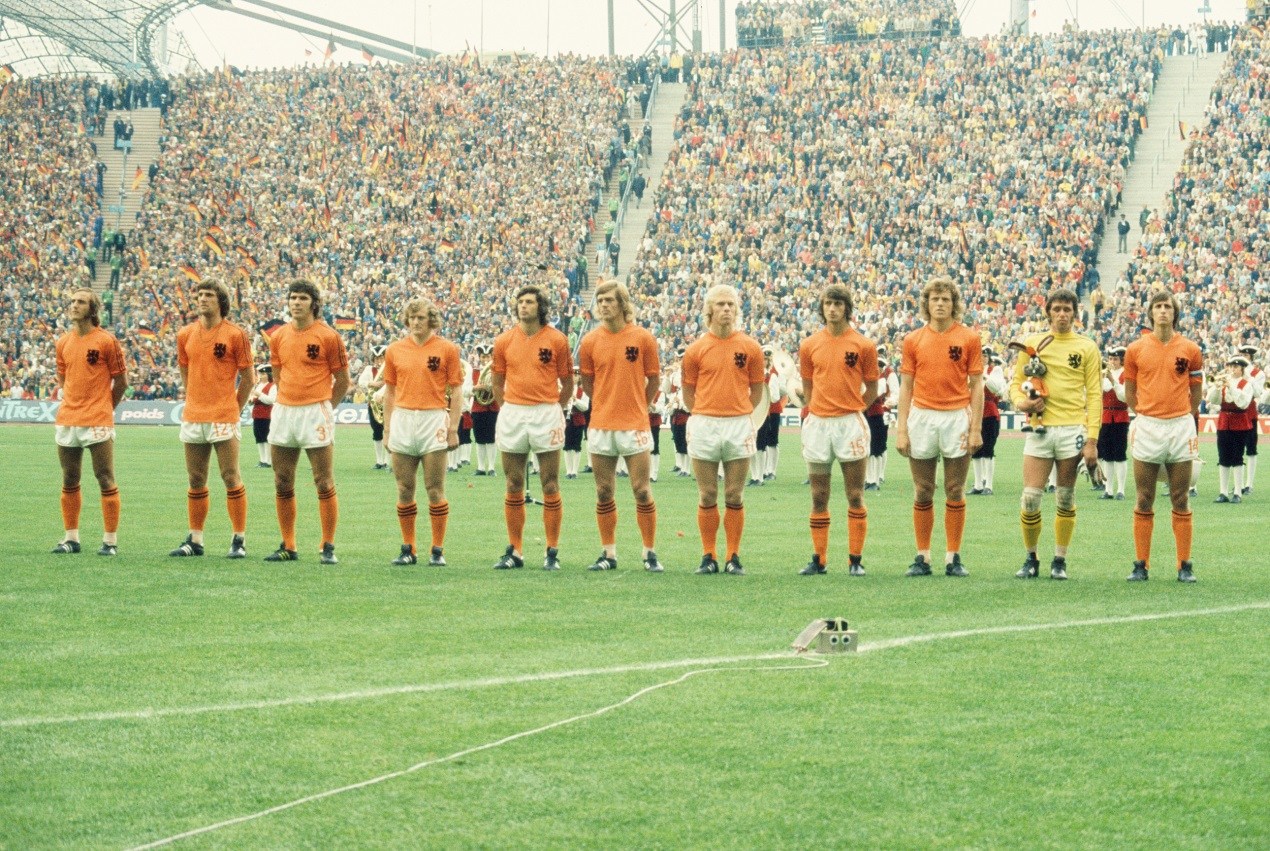
The Netherlands players line up before the 1974 FIFA World Cup final in 1974. /VCG File Photo
The Netherlands players line up before the 1974 FIFA World Cup final in 1974. /VCG File Photo
The post-Pele Golden Generation of Brazil, featuring Zico, Socrates and Falcao, was knocked out early in 1982 by the eventual champions Italy while they were knocked out in the 1986 World Cup quarterfinals by their French counterparts, in an epic game that saw Platini, Socrates and Zico missing penalties.
Belgium also had their first Golden Generation in that tournament in Mexico as Jean-Marie Pfaff, Eric Gerets, Patrick Vervoort, Enzo Scifo and captain Jan Ceulemans made their side a potent force until a Diego Maradona brilliance with a brace sent them back home in the semifinal.
Another team that showed promise in Mexico was Denmark’s Golden Generation of captain Morten Olsen, Michael Laudrup and Preben Elkjær Larsen, who couldn’t progress beyond the Round of 16 after being thrashed by Spain.
One of the most miserable performances of a Golden Generation was the Netherlands and its Golden Generation 2.0 at the 1990 World Cup.
The star-studded then European champions was led by Ruud Gullit and had the stalwarts of Ronald Koeman, Frank Rijkaard and Marco van Basten in their ranks but still they couldn’t go past the second round. They were followed by the Czech Golden Generation of Pavel Nedved, Petr Cech, Tomas Rosicky, Karel Poborsky, Milan Baros, Vladimir Smicer and Patrik Berger, who, despite being in the top bracket of the FIFA Rankings, couldn’t quite do well in the FIFA World Cup.
Around the same, the much-talked-about Portugal’s Golden Generation with Luis Figo, Vítor Baía, Deco, Rui Costa, Fernando Couto, João Pinto, Ricardo Sá Pinto and Paulo Sousa remained the under-achievers when it came to winning trophies in the senior level.

SITEMAP
Copyright © 2018 CGTN. Beijing ICP prepared NO.16065310-3
Copyright © 2018 CGTN. Beijing ICP prepared NO.16065310-3